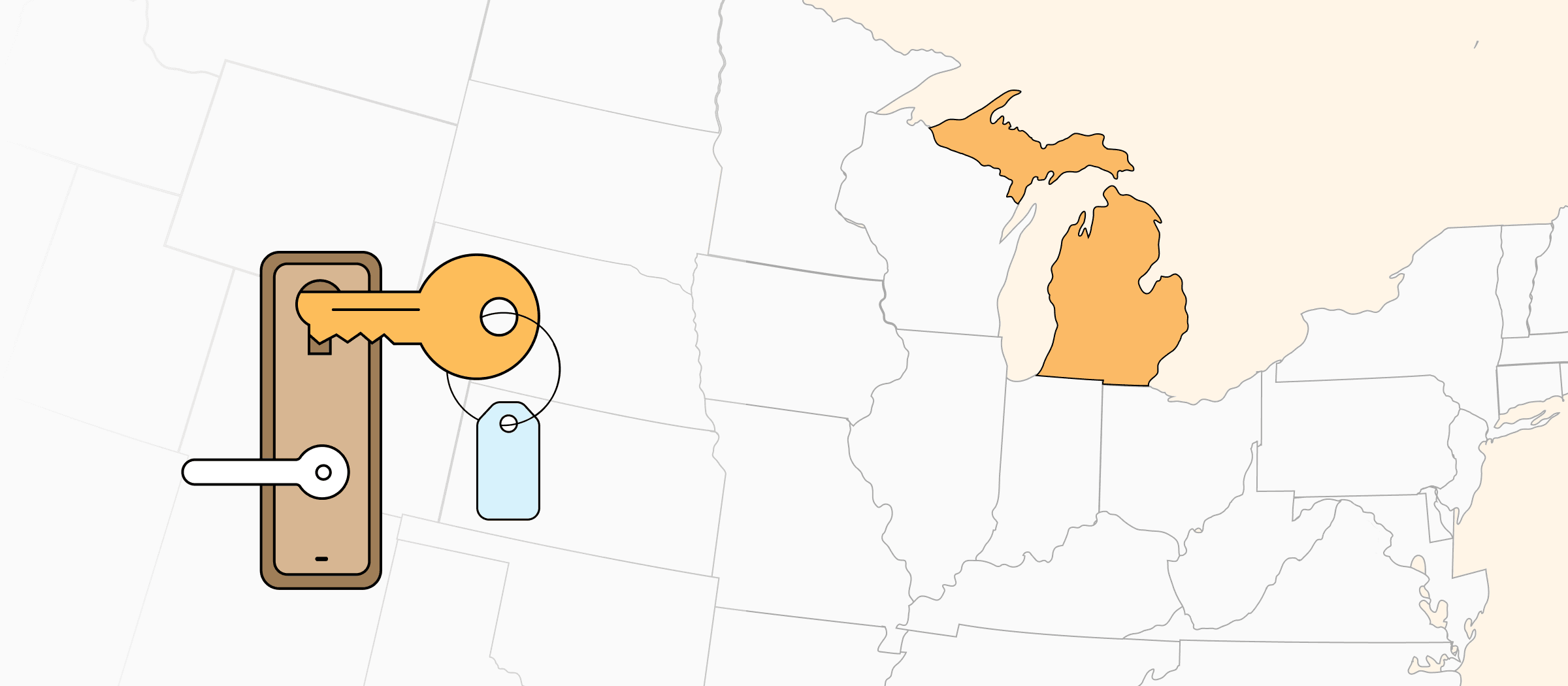
In Michigan, when terms of access aren’t otherwise agreed in the lease, a landlord has the right to enter a rental property for these reasons:
[1]
[2]
Michigan landlords aren’t clearly prohibited from legally entering a rental property without permission. However, entering without permission outside of an emergency situation may violate the renter’s right to quiet enjoyment of the rental property.
[1]
[2]
Michigan landlords can legally enter a rental property without the tenant present, if the lease doesn’t say otherwise.
[1]
[2]
Michigan landlords can show an occupied house, but only if this is allowed in the lease. Otherwise, the tenant can refuse.
[1]
[2]
Michigan landlords have no specific limit on how often they can enter for inspections. The landlord isn’t allowed to enter unreasonably often, but what’s reasonable gets decided case by case.
[1]
[2]
Michigan landlords aren’t legally required to give a particular amount of advance notice before entering a rental property. However, since the tenant has a right to quiet enjoyment of the property, 24 hours is a reasonable minimum for advance notice unless there’s a provable reason otherwise.
[1]
[2]
Michigan landlords aren’t legally required to provide notice before entering. However, entry without advance notice could violate the renter’s right to quiet enjoyment of the rental property.
[1]
[2]
Michigan landlords can notify tenants verbally or in writing about an intention to enter.
Michigan tenants can refuse entry to a landlord for seeking entry in an unreasonable time or manner to inspect or maintain the property, or for any reason that’s not explicitly allowed by the lease.
[1]
[2]
Michigan landlords can take any of the following actions if a tenant illegally refuses entry:
[1]
[3]
Michigan tenants can change locks without permission if the lease doesn’t say otherwise. Note that the landlord still has a right to enter for specific reasons, so it’s reasonable for tenants to provide copies of current keys.
[1]
[2]
Michigan tenants can take any of the following actions if a landlord enters illegally:
[1]
[3]
[4]
Michigan has no specific landlord-tenant entry law. Since the landlord has a legal duty to maintain the habitability of rental premises, he is legally permitted to reasonably enter the premises for that purpose, as long as it doesn’t disturb the renter’s quiet enjoyment. See Mich. Comp. L. § 554.139(1) (2022) (“the lessor… covenants…[t]o keep the premises in reasonable repair”); see also Slatterly v. Madiol, 257 Mich. App. 242, 258 (Mich. Ct. App. 2003) (internal citations omitted) (“[T]he covenant of quiet enjoyment is breached only when the landlord obstructs, interferes with, or takes away from the tenant in a substantial degree the beneficial use of the leasehold.”)
“(2) Any tenant in possession of premises whose possessory interest has been unlawfully interfered with by the owner is entitled to recover the amount of his or her actual damages or $200.00, whichever is greater, for each occurrence and, if possession has been lost, to recover possession[, including]… Introduction of noise, odor, or other nuisance.
“(3) An owner’s actions do not unlawfully interfere with a possessory interest if… The owner acts pursuant to court order… [or] interferes temporarily with possession only as necessary to make needed repairs or inspection and only as provided by law.”
Notice to quit may follow a substantive breach of a lease, since substantive breach permits termination. “A person entitled to possession of premises may recover possession by summary proceedings… After termination of the lease, pursuant to a power to terminate provided in the lease or implied by law.”
“A party should be held evicted when the act of the landlord is of such a character as to deprive the tenant, or has the effect of depriving him, of the beneficial use and enjoyment of the whole or any part of the demised property, to the extent he is thus deprived.”